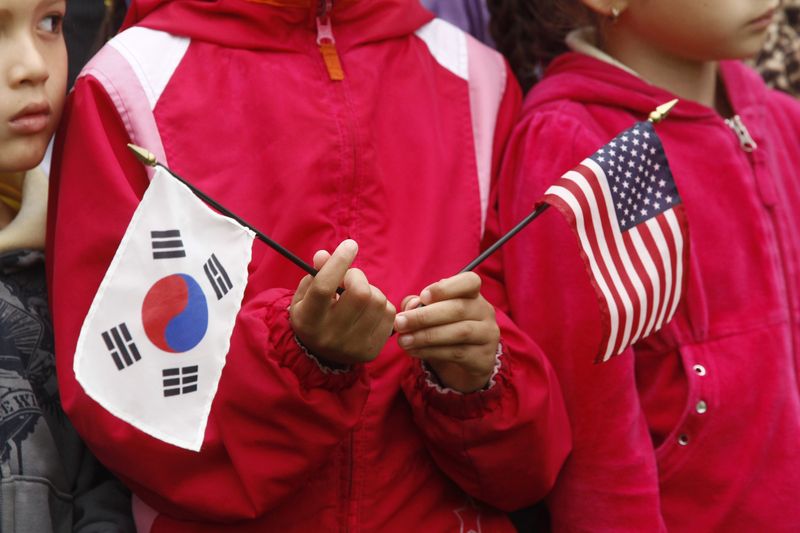WASHINGTON (Reuters) -U.S. Trade Representative Katherine Tai said on Tuesday the decade-old U.S. Korea Free Trade Agreement (KORUS) did much to expand auto and agricultural trade with South Korea, but suffered some difficulties in its implementation.
Tai, in remarks prepared for a U.S. Chamber of Commerce event, said there was more work to do to increase automotive and agricultural trade with South Korea.
"Over the last decade, the value of the goods and services we have exported to Korea has grown by over 17 percent to nearly $70 billion," Tai said. "Along with the successes of the agreement, we have also grappled with disappointments and challenges in its implementation."
KORUS, which took effect 10 years ago on Tuesday, saw a more-than-doubling of the U.S. goods trade deficit with South Korea to $29.1 billion in 2021 from $13.2 billion in 2011, according to U.S. Census Bureau data.
Tai said the U.S. auto industry had increased exports to South Korea, making it the fifth-largest market for U.S.-made vehicles, but there was "much further to go" to expand auto export opportunities.
"We must also remain vigilant in our government-to-government cooperation to overcome barriers that undermine the quality and quantity of those opportunities," Tai said.
The U.S. trade chief, who has taken a low profile on Russia trade matters since Moscow launched its invasion of Ukraine, did not mention the war in her remarks. U.S. lawmakers are working on legislation to strip Russia of its permanent normal trade relations status, which would allow the Biden administration to hike tariffs on imports from Russia well above levels pledged to the World Trade Organization.
Tai said U.S. agricultural imports have grown 35% in KORUS' first decade to $9.4 billion in 2021, making South Korea the top export destination for U.S. beef.

"Yet, despite this success, there is still room to grow the market in Korea for U.S. agricultural products – including creating a regulatory environment that facilitates access to agricultural biotechnologies," Tai said.
Tai's office said she will travel to Michigan on Wednesday with South Korean Trade Minister Yeo Han-koo to tour a silicon wafer plant being expanded by South Korean semiconductor manufacturer SK Siltron CSS.